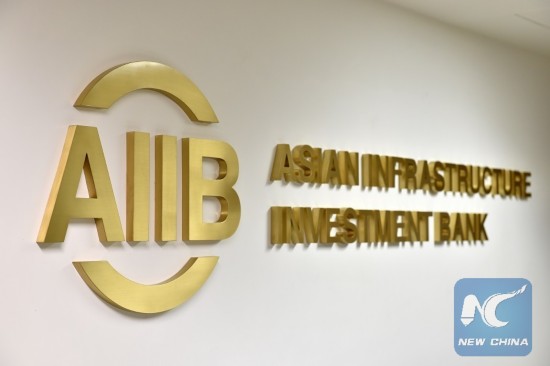


(Xinhua File Photo)
With Kenya and Papua New Guinea as its newest approved applicants, Asian Infrastructure Investment Bank (AIIB) has now expanded its membership to 86.
The two prospective members will officially join the bank once they complete the required domestic processes and deposit their first capital installment with the bank.
Kenya is the sixth African country to have joined the AIIB. As was reported by Kenya’s newspaper Business Daily Africa, the move is expected to open a new channel for cheaper financing of Nairobi’s huge spending requirements.
According to Henry Rotich, the Finance Minister of Kenya, the country is facing a funding deficit of $180 billion in infrastructure each year based on conservative estimates. Joining AIIB would be a wise choice for African countries as the bank would strive to improve their infrastructure, a Kenyan economist told People’s Daily during an interview.
Wilson Kamau, head of Africa Governance Institute (Kenya Chapter) believes that Kenya is communicating to China that “We are with you for the long haul”. “The gains that Kenya has made because of Chinese assistance have been massive,” he stressed, adding that its a benefit Kenya could not have gained from Western partners.
A report released by Ipsos, a global market research and consulting firm, showed that 34% of the interviewees in Kenya consider the China-Kenya tie as the country’s most important bilateral relationship.
Papua New Guinea is the latest Oceanian country to join the AIIB following New Zealand, Australia, Fiji, Samoa, Tonga, the Cook Islands and Vanuatu. As the largest developing country in the Oceanian region, Papua New Guinea also sees a large funding gap in its infrastructure despite sound development over the past few years.
The country joining the AIIB is seen as major progress that will definitely play a vital role in accelerating its construction of infrastructure, said Peter Drysdale, a professor from Australian National University.
Drysdale believes its a smart move for the country to join AIIB, because it can both introduce capital to build high-standard infrastructure and integrate domestic and international resources to tap into the potential of its national economy.
AIIB was established with the purpose of developing infrastructures in Asia, but non-regional investment is also allowed by its policies.
 Fire brigade in Shanghai holds group wedding
Fire brigade in Shanghai holds group wedding Tourists enjoy ice sculptures in Datan Town, north China
Tourists enjoy ice sculptures in Datan Town, north China Sunset scenery of Dayan Pagoda in Xi'an
Sunset scenery of Dayan Pagoda in Xi'an Tourists have fun at scenic spot in Nanlong Town, NW China
Tourists have fun at scenic spot in Nanlong Town, NW China Harbin attracts tourists by making best use of ice in winter
Harbin attracts tourists by making best use of ice in winter In pics: FIS Alpine Ski Women's World Cup Slalom
In pics: FIS Alpine Ski Women's World Cup Slalom Black-necked cranes rest at reservoir in Lhunzhub County, Lhasa
Black-necked cranes rest at reservoir in Lhunzhub County, Lhasa China's FAST telescope will be available to foreign scientists in April
China's FAST telescope will be available to foreign scientists in April "She power" plays indispensable role in poverty alleviation
"She power" plays indispensable role in poverty alleviation Top 10 world news events of People's Daily in 2020
Top 10 world news events of People's Daily in 2020 Top 10 China news events of People's Daily in 2020
Top 10 China news events of People's Daily in 2020 Top 10 media buzzwords of 2020
Top 10 media buzzwords of 2020 Year-ender:10 major tourism stories of 2020
Year-ender:10 major tourism stories of 2020 No interference in Venezuelan issues
No interference in Venezuelan issues
 Biz prepares for trade spat
Biz prepares for trade spat
 Broadcasting Continent
Broadcasting Continent Australia wins Chinese CEOs as US loses
Australia wins Chinese CEOs as US loses